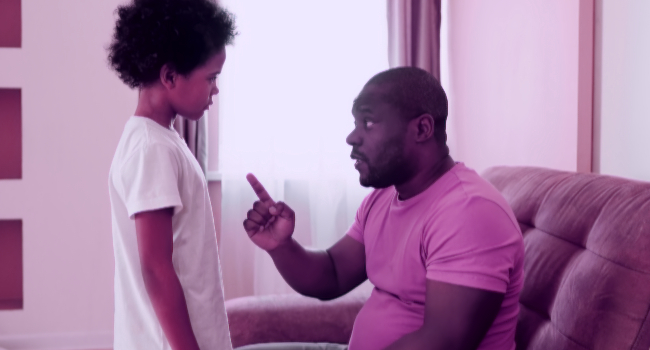Parenting trends come and go, but one that’s been gaining steam lately is gentle parenting. It’s all about nurturing your child’s emotional well-being, treating them with respect, and keeping the peace in the household. Sounds lovely, right? Who wouldn’t want to raise emotionally intelligent little humans? Unfortunately, gentle parenting doesn’t work like that.
But, before you start negotiating with your toddler about why they can’t have ice cream for dinner, let’s have a little reality check on why gentle parenting doesn’t work as perfectly as it sounds.
Now, I’m not here to dump on your parenting style. After all, gentle parenting certainly has its merits. It, however, doesn’t always work out the way you expected. In fact, it might actually be doing more harm than good. In some cases, it can backfire spectacularly. Disrespectful kids, endless negotiations, and a surprising lack of conflict resolution skills—these are just a few of the potential downsides.
So, let’s dive into why gentle parenting doesn’t work as effectively as we might hope when raising respectful, well-adjusted kids.
What is Gentle Parenting?
Gentle parenting is an approach that focuses on respecting a child’s feelings, prioritizing emotional connection, and eliminating punitive punishments like timeouts or yelling. This method encourages parents to treat their children as equals, emphasizing patience, empathy, and understanding.
Sounds great, right? Who wouldn’t want to raise a kid in an environment filled with love and mutual respect? However, reality sometimes paints a different picture. Gentle parenting, despite its idealistic appeal, doesn’t always yield the respectful, cooperative children it promises. In fact, in many cases, it may create a whole new set of issues.
The real issue with treating your child like your equal is that your child is still just a child. In treating them like an adult, aren’t you robbing them of their childhood?
The Issue of Disrespectful Kids
A common criticism of gentle parenting is that it can blur the lines between being a nurturing parent and being a pushover. Let’s face it—kids are experts at pushing boundaries, and when parents fail to enforce clear rules, children may interpret this as permission to do whatever they want.
Imagine this scenario: Little Jimmy, fresh out of a gentle parenting household, refuses to clean up his toys. Instead of a firm “Pick that up right now,” he hears, “Sweetheart, I see that you’re feeling tired and don’t want to clean up. Let’s talk about how we can both feel happy with this situation.” Jimmy shrugs, walks away, and boom—your living room is a toy store explosion.

While gentle parenting hopes to foster respect, it can actually have the opposite effect. Children who aren’t given firm boundaries often struggle to respect the authority of their parents. This behavior doesn’t magically vanish at school either. Once these kids hit the classroom, teachers become just another adult whose rules are negotiable. And when they grow up? Let’s just say future bosses might not appreciate the negotiation skills learned at home.
Lack of Accountability Leads to Entitlement
One of the unintended consequences of gentle parenting is that it can foster a sense of entitlement. Children who are constantly shielded from consequences or who have everything explained to them in excruciating detail can start believing that their feelings should be catered to at all times.
In the real world, however, not everyone is going to sit down and discuss their every decision with you. Conflict resolution in adulthood sometimes involves hearing a firm “no” without a lengthy explanation.
Kids raised without exposure to discipline may find it difficult to handle rejection, leading to frustration or even tantrum-like behavior in adulthood. Can you picture it? A 30-year-old arguing with their boss, insisting that deadlines are “stressful” and should be “negotiated for the sake of mental well-being.”
Why Gentle Parenting Doesn’t Work in Conflict and Problem-Solving
Gentle parenting tends to prioritize maintaining peace and minimizing conflict, which sounds great in theory. It, however, doesn’t necessarily prepare kids for the real world. Kids need to learn how to face challenges head-on, handle criticism, and solve problems without melting down or retreating.
When children are raised in an environment where every difficult situation is softened, they can grow into adults who avoid confrontation or crumble under pressure. Life is messy, and conflict is inevitable. If a child never experiences boundaries or consequences, they may grow up with no idea how to handle adversity.

Striking a Balance: Gentle But Firm
Now, let’s be clear: Not all aspects of gentle parenting are bad. Empathy, communication, and emotional intelligence are vital parts of raising well-rounded humans. But there has to be a balance. Being gentle doesn’t mean being weak. Children need boundaries to feel safe, and they need to experience the occasional firm “no” to understand the realities of life.
The key is blending gentle guidance with firm boundaries. Respect your child’s feelings, but also remind them that respect is a two-way street. By showing them that there are rules, consequences, and limits, you’re not only raising a kind child but also one who understands accountability, respect for others, and how to handle the challenges life throws their way.
Final Thoughts on Why Gentle Parenting Doesn’t Work
At the end of the day, parenting is hard. No one gets it 100% right all the time, and each family has to find what works for them. But before you commit fully to gentle parenting, it’s worth taking a reality check. While fostering emotional connection is crucial, don’t forget that discipline and boundaries are just as important for raising respectful, responsible, and resilient kids.
Sometimes kids just need to hear “no” without a negotiation—and maybe a time-out or two won’t hurt either!





















